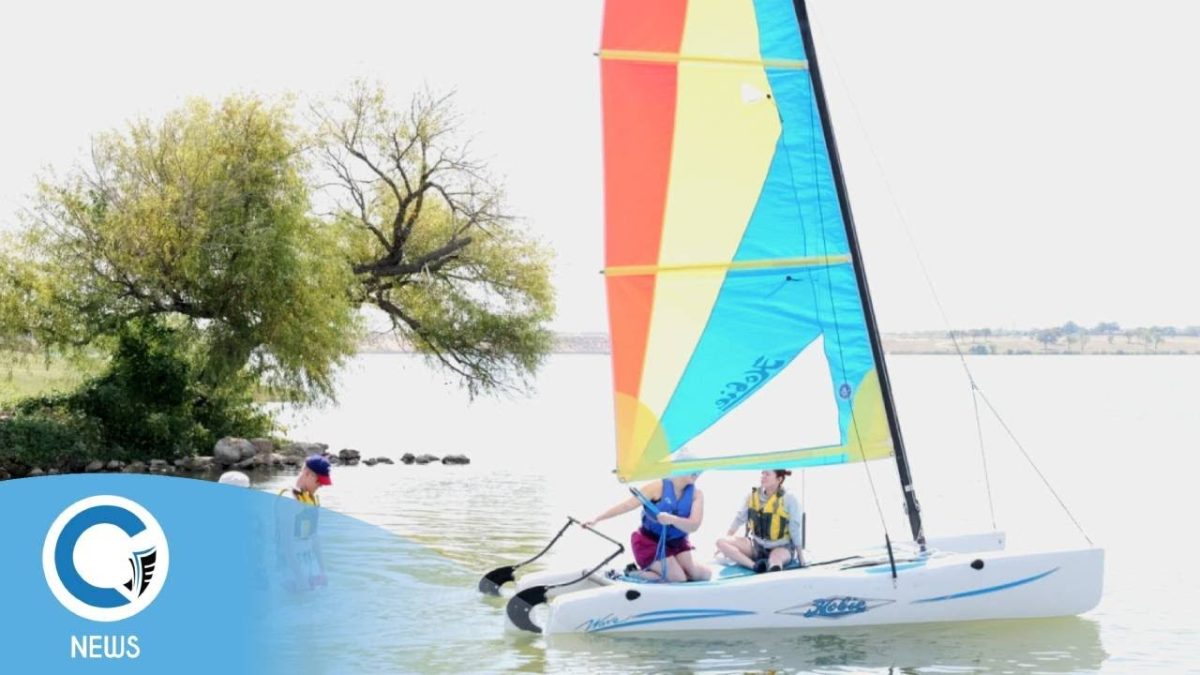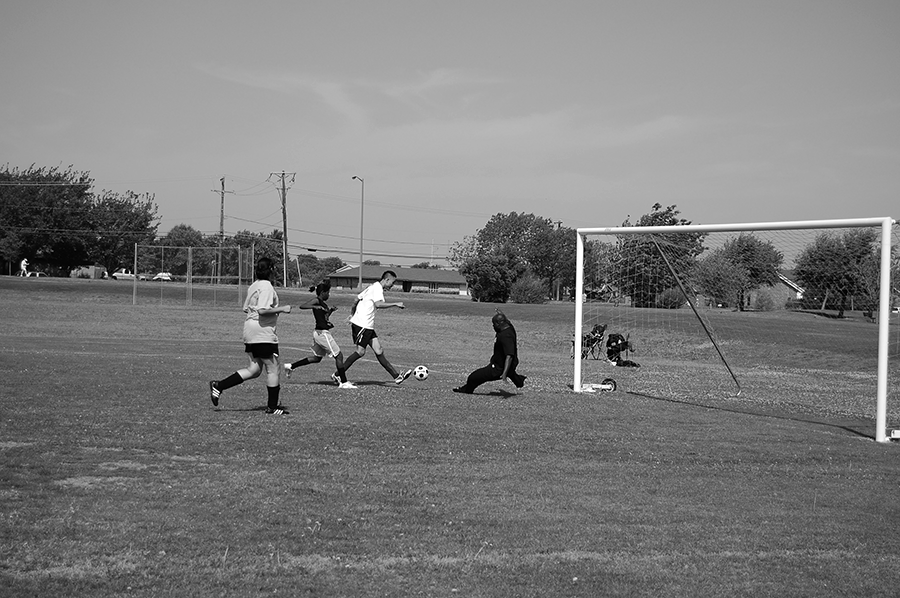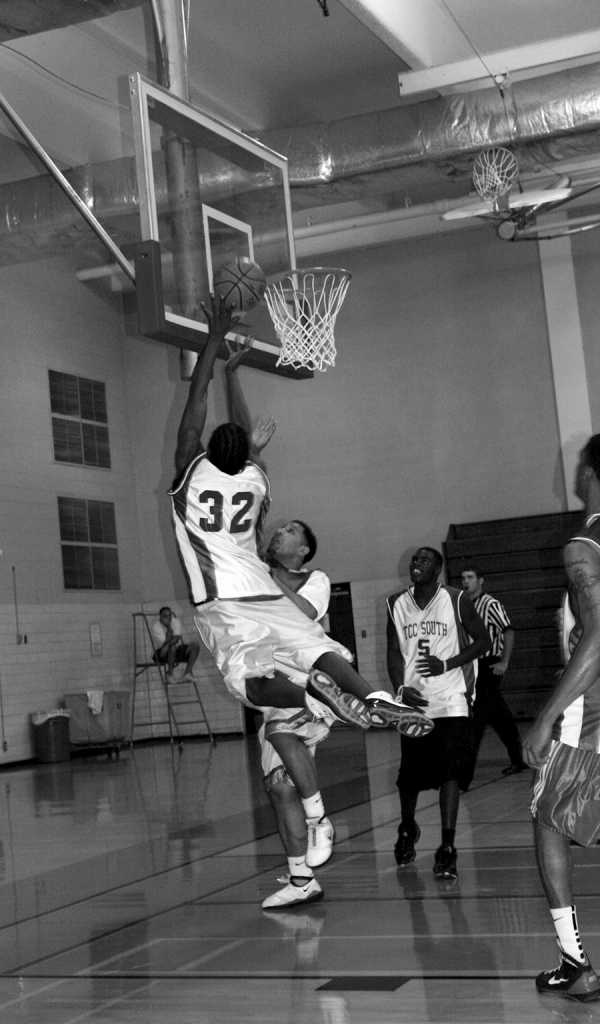By Mona Lisa tucker/reporter
On a clear and breezy Thursday afternoon, assistant professor Rodger Bednar leisurely strolled toward the SCLC building on South Campus to teach speech.

Photo courtesy Rodger Bednar
No one could’ve guessed that four years ago he was in a hospital overseas on a ventilator struggling for his very existence.
Bednar and his wife Nancy enjoy traveling, and in 2007, they made their first trip to Europe.
“We travel alone and just like to pick up and go and see and do things,” he said.
They spent a day in Rome and took a train to Florence.
On their second day there, Bednar suddenly became ill.
He experienced pain that snowballed quickly. Within about 12 hours, he developed a high fever and the beginnings of pneumonia.
“My wife contacted the hotel, and I was picked up in an Italian ambulance and taken to a 12th century hospital to be treated,” he said.
About 10 hours later, he was placed in intensive care in a thoracic specialty hospital on the outskirts of Florence, where he was hooked up to a ventilator and a tube was put down his throat.

Casey Holder/The Collegian
On three different occasions, staffers drained his lungs with a needle without anesthetic, so it felt like getting stabbed. During one of those procedures, he held the shoulders of a male nurse so tightly, he said the nurse passed out.
On another occasion, his neck was sliced, and a port valve was inserted to administer medication. A bronchial scope was also inserted in his lungs without the use of anesthetic.
“Other than that, it wasn’t a big deal,” he said.
The Bednars travel with a world phone, so they talked with their son Paul, who prepared to come visit them, Bednar said.
When the doctor threatened to put Rodger on a respirator, Paul immediately made plans to fly to Italy to be with his mother.
“Each day, I would return to the hospital expecting Rodger to be on a respirator, and each day the medical personnel could not explain how he was still breathing on his own,” she said.
Neither of them spoke Italian, so when three surgeons tried to explain to Nancy that Bednar needed emergency surgery, she didn’t understand them.
“She just stopped for a moment and said a quick prayer that she wished somebody would come along that could interpret for her,” Bednar said.
As she was finishing the prayer, she said the steel doors behind them that were always locked magically opened, and in walked two young American bible school students from Harding University in Florence asking for her.
“I wanted to check their backs to see if they had wings. I was so sure they were angels. No wings, just God’s impeccable timing,” she said.
Paul called a cousin, a graduate of Harding’s main campus in Searcy, Ark. In turn, the cousin called the president of Harding, which happened to have a campus in Florence.
The president called the Italian campus, and officials there called a group of missionaries on the campus, Bednar said.
“And they moved my wife’s belongings out of the hotel and moved her into a free resident location. They visited each of us daily and just took care of everything,” Bednar said.
They had stayed in a hotel, which turned out to be more expensive than their planned three nights.
Bednar had the surgery on the infection around his lungs, but the stress on Nancy was so severe that about three days later, she suddenly had an attack of diverticulitis.
With diverticulitis, the colon becomes inflamed and can rupture and put a hole in the intestines. Then bacteria enter the abdominal cavity and can result in death, Bednar said.
“I’m sure it was simply a coincidence — yeah, right — that the two aforementioned young men just happened to be watching a movie in the school living room when I crept down the stairs asking for help,” Nancy said.
And it just happened that the abdominal hospital was just around the block from the school. And it also just happened that the only car for the hostel was there that night, she said.
“These two precious young men took me to the emergency room and stayed with me, interpreting my pain and my need for immediate attention until after two o’clock in the morning,” she said.
Diverticulitis is a personal problem — something not mentioned in polite company, especially in front of 20-something guys, Nancy said. But one of them stayed right there the whole time, holding her hand, leaving only when she was being examined, she said.
“I tried to convince my Italian doctor that I would be better after a giant dose of powerful antibiotic and lots of pain meds, but, fortunately, he kept me in the hospital. My colon ruptured two days later, and I was in the perfect spot for emergency surgery,” she said.
In Florence, the hospitals are treatment-specific such as the thoracic hospital for lungs and heart where Bednar was, and the abdominal hospital for gastric, pelvic and maternity where Nancy was admitted. The hospitals were on opposite sides of town.
“By this time, the two hospitals had worked together and managed to get Rodger moved over to my hospital to finish his recovery. He was there for my surgery. Frightening for him, I imagine, but at least he was there,” she said.
Although Bednar was recovering from surgery with the tube still down his throat preventing him from talking, he was still deeply concerned and worried about Nancy. However, he knew she would be cared for because they are both committed Christians.
Paul flew over while they were still hospitalized, and the missionaries gave him a place to stay and a car to visit them, Bednar said.
“Then when I finally left the hospital, I moved and stayed at the Harding University site. And all this was completely free of charge. They would not take any payment,” Bednar said.
Bednar stayed there for several days while Nancy continued to recuperate in the hospital. Finally, she had gained her strength and was released. And the couple remained about three more days to gain more strength, he said.
“Our precious son made two trips to Italy that month,” Nancy said. “I was able to see my grown son in action. A charming man who could wheedle the hardest-nosed airline people into reinstating our unused plane tickets, changing my hotel points from one to another and arranging a wheelchair for me to board the airplane, etc.”
Paul did everything without raising his voice or losing his temper, she said.
“God must have given him that ability because he didn’t get that from my side of the family,” she said.
Bednar said they learned deep, deep lessons about themselves, others, their family and their faith through that experience.
The only problem that came out of it is they still have not seen Italy.
So they are planning to go back soon to complete the trip they started, he said.
No trace of the ordeal remains as he sits atop a table in his class, swinging his legs, preparing to administer a mid-term exam.
“It was a frightening experience at the time, but it’s a warm feeling now that it’s behind us,” he said, “to look back and to see all the things that happened, not by accident but by the grace of God looking after us.”




























